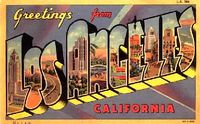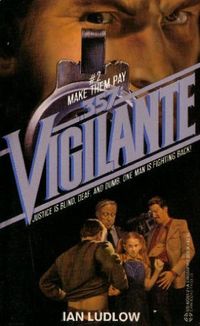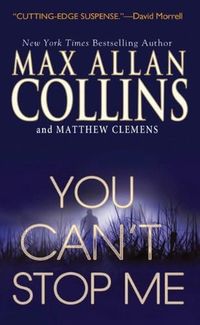 Last summer, Mystery Readers Journal devoted an issue to Los Angeles and my contribution was to share the many ways I have described the city in my books. The following is an excerpt from that article.
Last summer, Mystery Readers Journal devoted an issue to Los Angeles and my contribution was to share the many ways I have described the city in my books. The following is an excerpt from that article.
I grew up near
San Francisco, a city with enormous charm and character, a definite center and,
thanks to the Bay and the Pacific, obvious borders. San Francisco is a city
with such a strong, undeniable personality, that it almost feels like a person
to me instead of a place. I assumed, in my inexperience and youth, that all of
the great cities of the world would be like that. And I eventually learned
that, for the most part, I was right.
But not Los
Angeles.
When I first
arrived here in 1980 to go to UCLA, all I saw was endless sprawl, about as
colorful and inviting as a parking lot. It was a city seemingly without shape,
boundaries or a personality that I could identify. I was lost within it, unable
to find its center or my own.
I eventually
realized that I was looking at the city all wrong. It was a mistake to try to
grasp the enormity of it, to see it all in my mind. There’s a reason that L.A.
is where movies and TV shows are made. The city is a soundstage, a green
screen, a back-lot. It’s city that’s remade every day, where history is
measured in increments on a parking meter. I had to make the city my own, and I
did that through my fiction and screenplays.
So perhaps the
best way to understand how I see Los Angeles, and my relationship with it, is
by looking at how I’ve written about it in my books over the years. Here are
some examples:
“It was
a clear, crisp day in the San Fernando Valley. A rainstorm had flushed all the
gunk out of the air and onto the streets, where it washed into the drains and
poured into the Santa Monica Bay, poisoning the water and prompting the closing
of ten miles of prime beachfront. Days in L.A. didn’t come any nicer than
this.” Beyond the Beyond“The
ground isn’t supposed to move. Everyone knew that. It was arrogance, and more
than a little stupidity, to stay in a place where it did. But what was
Hollywood without arrogance and stupidity? You couldn’t manufacture dreams if
you weren’t willing to live in one yourself,” The Walk“Beyond
the TV and film locations, the most interesting and significant landmarks in
the city were as transitory and disposable as the historical record they were
printed on—-the slim ‘Maps to the Stars’ Homes’ distributed by bored Latinos
sitting on folding beach chairs at street corners and freeway off-ramps,” The Walk“[He]
watched Spring Dano jog down the grassy median of San Vicente Boulevard, her
breasts as solid and immovable as the Statue of Liberty’s. One a sunny day,
tanned, perfect babes and tanned, perfect hunks jogged up and down the median,
from Barrington to Ocean Avenue in Santa Monica, hoping to get noticed. […] The
median was one of the great, unpublicized short-cuts into the entertainment
industry. If you distracted an agent, producer, or director long enough to get
him involved in a major traffic accident, you were on your way to a walk-on
role in a series or a weekend read of your spec script.” Beyond the Beyond“Even
without a sign, he would’ve known he was in Little Tokyo. On the south side of
the street, a recreation of a wooden watchtower marked the entrance to a
mini-mall designed to resemble an authentic Japanese village, at least as it
would have been if built by a Winchell’s Donuts franchisee,” The Walk“The
only natural source of water in the valley was the Los Angeles River, which
remained bone dry half the year, only to swell in the winter as much as
three-thousand fold in a single rainy day. As much as Los Angelenos craved
water, they didn’t appreciate the unpredictability of the river and treated it
as they would any other piece of land. They paved it,” The Walk“The
name of their [apartment] building was written diagonally across the front in
plywood script and punctuated with a starburst lamp. The building was a
rectangular stucco box disguised with enormous wooden fins that made the
tenants feel as if they were living in the trunk of a 1959 Cadillac,” Diagnosis Murder: The Past Tense“The Old
Money felt that when the valley’s rich had real money and actually mattered,
they’d move to one of the Bs – Brentwood, Beverly Hills, or Bel-Air. Until
then, they deserved the valley,” The Walk“It’s a
real nice drive through the Santa Monica Mountains, with lots of charred trees
and blackened earth from the annual wildfires to look at. You also pass some
dramatic gouges and gashes in the hillsides from the seasonal mudslides. It’s
not the place I’d pick to build my secluded mansion, but I’m not a rich movie
star or studio executive,” The Man with
the Iron-On Badge
“He
stayed several cars behind her as she cruised Pacific-bound on Jefferson,
across the wide-open marshland, the most valuable, undeveloped property in Los
Angeles. The land had been earmarked for
decades as the site of an ambitious, upscale neighborhood of towering
condos, exclusive beaches, swank shopping, and private marinas, but was mired
in legal challenges, zoning ordinances, and politics. For now, the land was
home to cancerous ducks, corpulent mosquitoes, and chunks of sewage that
dropped from incoming jets like shit from a pterodactyl.” My Gun Has Bullets





